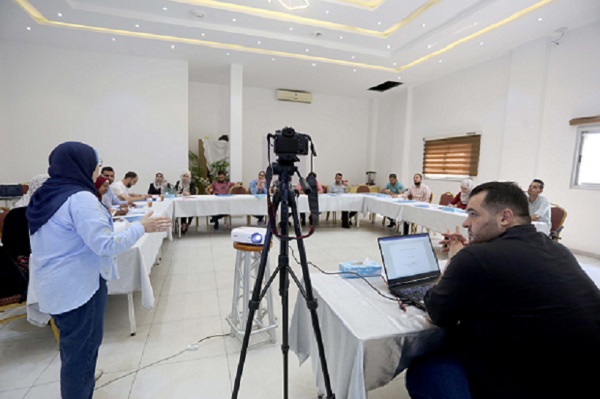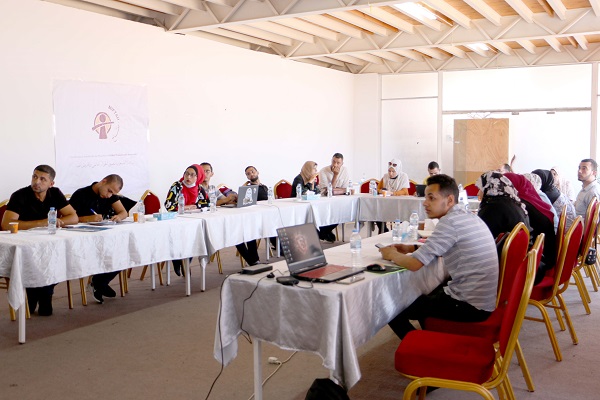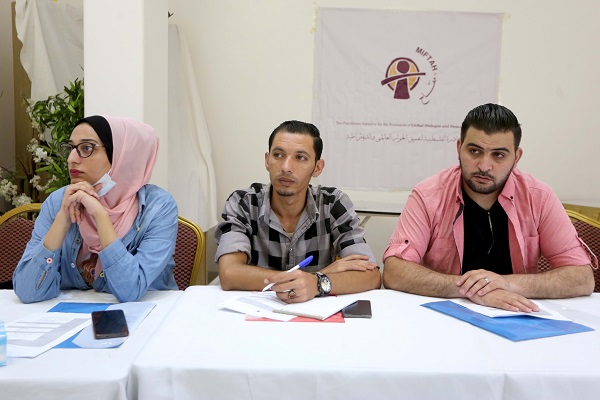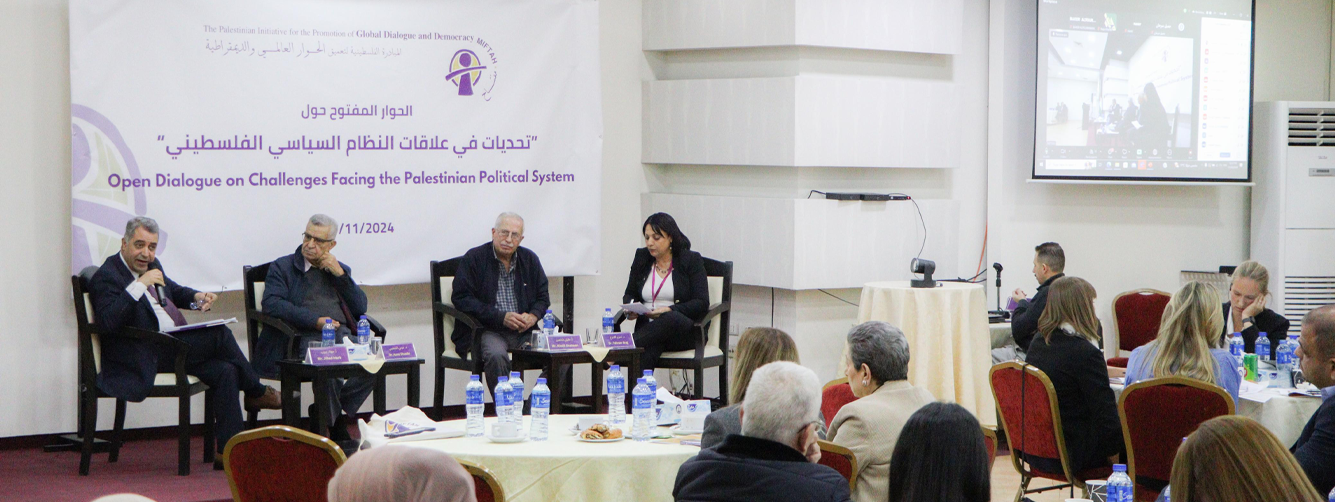
Ramallah – 17/7/2021 – MIFTAH recently capped off four training workshops on media and digital campaigns that targeted a number of young activists and leaders in the West Bank and Gaza Strip. The objective of the workshops was to build the participants’ capacities in managing digital campaigns and disseminating a civil discourse based on the values of good governance and democracy, in addition to promoting a culture of rights and freedoms within social media content.
The training focused on the need for digital platforms to push for the promotion of the political participation of youth. It also stressed on the need for youth to unify their efforts in pressuring decision-makers to ensure the fair representation of this sector in the Palestinian political system. Another objective of the workshop was the dissemination of content based on a culture of human rights, which in turn will promote the protection of freedoms and Palestinian citizens’ rights in addition to combatting the discourse of hatred and polarization.
Participant Malak Nasser Ayede, from Jericho, said the training gave her skills on how to use social media in a more strategic way. This became apparent from her posts, which she says are now more to the point and attractive to the reader. “I hope MIFTAH offers more training and expands to other regions so that more people can benefit from them,” she said.
Sally Nakhla, from Ramallah, also said she greatly benefited from the training, especially since she works in the field of campaign management for youth issues, including their political participation.
MIFTAH coordinator in the Gaza Strip, Shadia Al Ghoul, explained that the training workshop in Gaza targeted 20 activists with the goal of providing the participants with management skills for lobbying and advocacy campaigns in the media, especially through digital media outlets. It also aimed to develop their skills in providing a civil media discourse based on the promotion of democratic values and foundations, in addition to strengthening skills in planning digital campaigns. Al Ghoul also said it provided the participants with skills for preparing digital media content that advocates for the political participation of youth.
Trainer Fadi Al Asa said the training could help the participants achieve strong, national Palestinian media advocacy campaigns, stressing however, the need for a methodology in developing their knowledge in areas that would serve their causes and issues in the future.
“We trainers need more time to train and help them gain the necessary skills, while the trainees also need more time to implement this acquired knowledge and learn from their mistakes so they don’t face any problems in the future. Hopefully they will achieve their intended outcome of creating digital media campaigns that they can later implement on the ground. What’s more, the trainees could eventually become trainers with some additional preparation, thereby broadening the circle so it is not only limited to small groups but becomes more community-based. We need a more comprehensive endeavor not limited to only certain topics, given there are always major technological developments pertaining to social media.”
Meanwhile, MIFTAH project manager, Hassan Mahareeq, said the training workshop was part of MIFTAH’s interventions within its objective of supporting and empowering young leaders and creating an atmosphere of dialogue between Palestinian youth to promote political participation, a unifying national identity and the adoption of democratic values.
This project is carried out by MIFTAH in partnership with the Austrian Representative Office.
Please find below a link to the pictures from the Gaza Strip workshop:
https://drive.google.com/drive/folders/1ln7S_ay00IrX56dallHSi5bSktf9biP-?<\ausp=sharing












